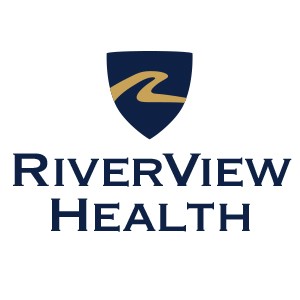KROX talked with RiverView Health CEO Carrie Michalski to get an idea on how prepared Crookston is should an influx of COVID-19 cases show up in the community.
One thing that is often said when there is a crisis is that people and communities come together, and that is what Michalski describes happening with the health care community across northwest Minnesota. “One thing people should know is that Crookston isn’t out here on an island, planning alone,” said Michalski. “Neither is Altru in Grand Forks, or Sanford in Bemidji or the hospital in Warren, all of those places in the listening area. We jointly plan together all of the time for emergencies and pandemics, so our regional group that meets all year long is now meeting very frequently, having daily communications and joint planning. And, so all of northwestern Minnesota is working together. That’s an area that goes over to Bemidji, up to Roseau, back across to the North Dakota border, and then down to Crookston. Then we also work across state lines with partners at Altru in Grand Forks and then Essentia Health and Sanford in Fargo. So as a region, no facility is out there alone having to tackle a hotspot or an outbreak in their community alone.”
Two of the more common shortages in areas being hit are by COVID-19 are bed space and ventilators. Michalski said there are nearly 150 ICU beds and almost 100 ventilators across the region. “We have about 148 ICU or critical care beds in our region,” said Michalski. “And on standard day-to-day, we always have 88 ventilators within our region. So, we’re all working to collaborate that we would share and level load, do some patient transferring if that is a need. Right here in Crookston, we feel very prepared. We have probably the strongest team in adult critical medicine that we have had in my lifetime. For most of that time, we’ve had 1-2 adult medicine internist physicians in our community. Right now, we have five. One of those is part-time, and RiverView has four full-time adult medicine internal medicine providers on our team. So, that’s allowing us to build what we call critical care teams that would take care of high needs, possibly ventilated patients.”
Those critical care teams consist of an adult medicine internist, a nurse anesthetist, a respiratory therapist, and a critical care nurse. Michalski said that in Crookston, there are five traditional ICU beds with ventilators for patients. They could also use the full 25-bed hospital to expand that capacity, and all those rooms are double rooms so they could hold 50 total patients. The second way would be to expand patient care to other areas of the facility, explained Michalski. “The state has determined the next best thing is to look at other areas within a hospital that can support patient care and keep all of the patients that are needing care in the hospital building,” said Michalski. “They call these alternative hospital beds, and its places where you could put a long-term patient that you typically wouldn’t. Then we would likely put some patients in our same-day surgery area where we have all of those amenities, oxygen, restrooms, and all those theses we’d need for patients. And then, within our operating suite, there are areas that we could use for patient overflow.”
Michalski said expanding to non-traditional areas within RiverView wouldn’t happen unless all of the beds at hospitals throughout the region we’re filled. The final option, in a catastrophic situation, would be determined by the Minnesota Department of Emergency Management to use community cares sites as a worst-case scenario. Michalski said that it would only become a possibility if all the possible beds within hospitals from Fargo to Roseau were filled with patients. A list of vetted community care sites may be made public by the state next week, but Michalski did say none of those sites are planned in Crookston.
RiverView, like every other hospital throughout the state, has had to put a hold on all elective procedures along with altering several different operations. Michalski said the effect of those moves has been devastating to the hospital financially. “The effect has been huge, and I think I’d use the word devastating really to the financial wellbeing and the health of RiverView Health here in Crookston and hospitals across the country,” said Michalski. “Literally, in one day, our main source of revenue evaporated. I think it’s a story we hear up and down main street not just in the hospitals, but I think the hospital story is a little as it’s counterintuitive. Since COVID is a health-related crisis, I think there is some initial thinking that volume and the possible surge in COVID would be financially viable for a hospital. I think this number is probably going to get a little bit worse when we see this week and next week’s numbers, but at this time, we are losing about $750,000 in net revenue a week.”
Michalski also took time to thank Erickson Embroidery for making masks for staff to use when they need to be at the hospital but aren’t apart of the critical care team. And she thanked Bremer Bank for working throughout the weekend to complete RiverView’s application for the payroll protection program to sustain their payroll over the next eight weeks. Michalski also commended the local small ambulance services throughout the area for their efforts in being a good partner with the hospitals in the regional planning for COVID-19.
FOR THE FULL INTERVIEW WITH RIVERVIEW HEALTH CEO CARRIE MICHALSKI – CLICK BELOW
Tags:




